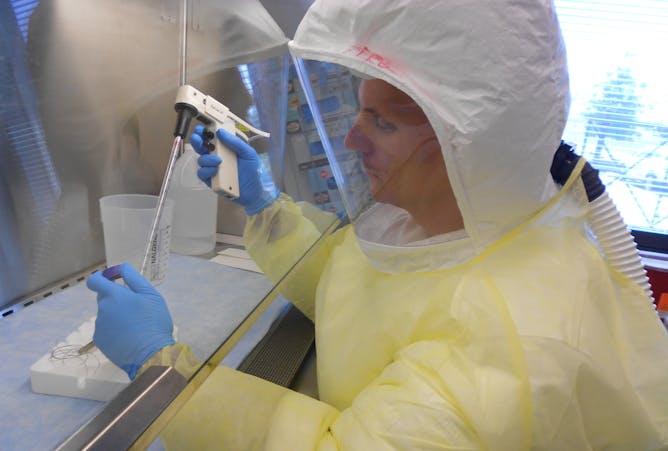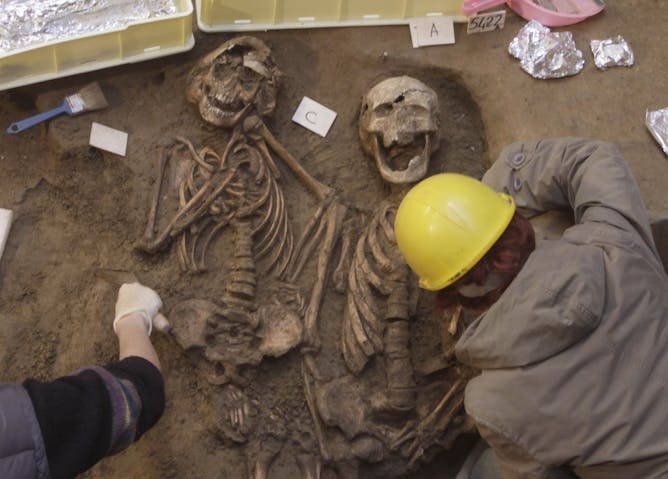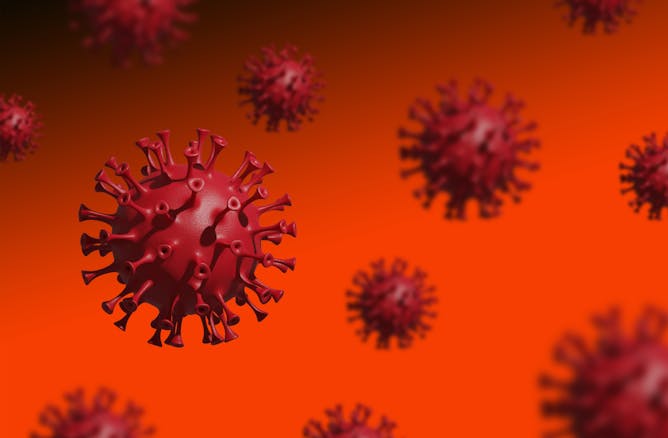|
It takes between 30 and 45 minutes for vaccine developer Troy Sutton to don all the gear he needs to enter Penn State’s high-containment biosafety lab. Read his account of why he feels safer handling live SARS-CoV-2 virus in that lab than going to the grocery store.
This week’s research and science news also features the latest findings on airborne spread of the coronavirus and why, from an evolutionary medicine perspective, the virus is different from many other
pathogens. And with public protests across the country, a legal scholar examines the risks of using big data and surveillance technologies in law enforcement.
|

Troy Sutton works with potentially deadly pathogens but the right precautions greatly reduce the risks.
Penn State
Troy Sutton, Pennsylvania State University
To find a SARS-CoV-2 vaccine, scientists need to work hands-on with the highly infectious coronavirus. It happens in a super secure lab designed to keep them safe and prevent any escapes.
|

Dead men do tell tales through their physical remains.
AP Photo/Francesco Bellini
Charlotte Roberts, Durham University; Gabriel D. Wrobel, Michigan State University; Michael Westaway, The University of Queensland
People have lived with infectious disease throughout the millennia, with culture and biology influencing each other. Archaeologists decode the stories told by bones and what accompanies them.
|

An artistic rendering of SARS-CoV-2, the virus that causes the COVID-19 illness.
Getty Images / s-cphoto
Athena Aktipis, Arizona State University; Joe Alcock, University of New Mexico
Pathogens typically face a trade-off between virulence and transmission. But that's not the case with SARS-CoV-2.
|
Other Good Finds
|
-
Russ Schumacher, Colorado State University
Hurricane and tornado winds spin in circles, but there's another, equally dangerous storm type where winds barrel straight ahead. They're called derechos, and are most common in summer.
-
Douglas Reed, University of Pittsburgh
SARS-CoV-2 can be spread through the air. But just how much of a factor that is has been hard to determine. Recent evidence suggests it is common, posing problems as public places begin to reopen.
-
Andrew Guthrie Ferguson, American University
Police forces across the country now have access to surveillance technologies that were recently available only to national intelligence services. The digitization of bias and abuse of power followed.
|
|